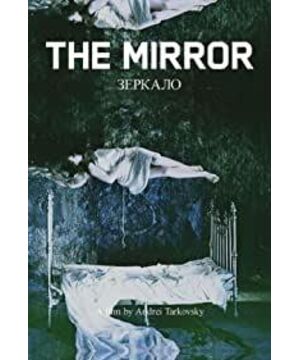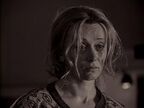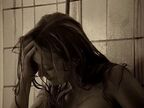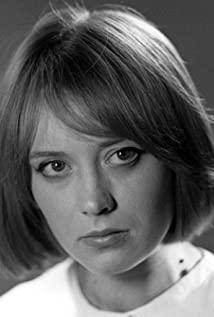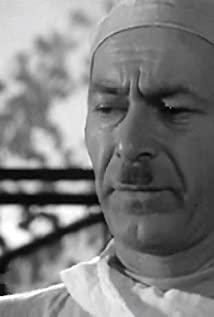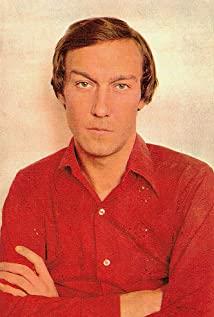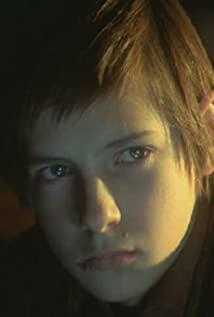The rain outside was just right, and occasionally a person drove a car on the road.
The old house as a child was either burnt to ashes, or it was old and deserted, and there was a puff of smoke and a four-wheel drive vehicle that landed somewhere.
Mirror, directed by Andrei Tarkovsky. After watching the movie twice and his "Sculpting Time" I tried to express what I wanted to say.
The film "Mirror" does not have a linear narrative plot, fragmented fragments, the structure of stream of consciousness, large sections of memories, dreams, illusory imagination, and interspersed with documentaries during the war. In this film You can't even tell the difference between reality, memories, dreams, and imagination. If you don't look closely, you can't even tell the characters apart, because the narrator's mother and the narrator's wife in the movie are played by the same actor. The narrator of the film never appears on camera, and there are several large poems by his father, Arseny Tarkovsky, recited in the background.
This is the basic situation of the film. In fact, I watched it for the first time and felt that the film was full of symbols and metaphors, but Tarkovsky said in "Carving Time" that what he described in the film was his reality Life appears, then we no longer analyze what those strange and strange shots are hiding, it is meaningless.
But we still have to explain what happened to those seemingly abstract and strange shots. Personal understanding, you can think about your childhood in your own memory, and think about the dreams you still remember. There are The perfect logic of perfection? Isn't it also full of a lot of weird and inexplicable things? This is the starting point of the film, extending from a certain memory or dream of the director.
Next, I would like to talk about my understanding of film fragmentation and irrational logic. Obviously this was deliberately arranged by the director. The memories mentioned above are always poetic. But memories cannot be directly put on the camera. Memories need to be processed in order to be reproduced artistically. It is important not to lose that unique emotional atmosphere, otherwise the replay of memories full of details will only disappoint us. Because the home we grew up in and haven't seen for many years in memory is very different from the house that has gone through the vicissitudes of life in reality. The poetry of memory is always destroyed by reality. High-level movies can be made on the basis of this memory, but the behavior of the protagonist and the logic of events are disrupted. It will be a story about his memories and dreams, even without him appearing on camera, or more precisely, not like a film shot in traditional theatrical mode. This method can express profound thoughts, depict the unique personality of the protagonist, and explore his inner world. This technique is common in literature and poetry, where the lyrical protagonist does not appear, but his thoughts and ways of thinking are shaped by distinct influences. Here is a quote from Tarkovsky's "Sculpting Time".
Because Tarkovsky believes that the logic of poetry is closer to the rules of thought development, and closer to the essence of life than the logic of traditional drama, some documentaries that seem to record reality can only be superficial expressions. Poetry here is a feeling of the world, a special way of looking at reality.
It needs to be explained here that poetic is not the same as the so-called "poetic film", which is an expression that Tarkovsky hates. Poetry here In addition to the above explanation, poetry and art are pure and a non-utilitarian expression, as Plato said in the Republic, justice for the sake of justice itself, not for the sake of justice. benefit. Poetry is a different way of looking at the world, in expressing ideas, in the pursuit of eternal values. In Tarkovsky's eyes, the artist serves the public, and the artist needs to achieve a resonance with the audience, while the philosopher pursues the truth and points out the meaning of human life, the boundaries of reason, and the meaning of existence. Obviously Tarkovsky was happy to be a philosopher. However, artistic expression or poetic expression is cryptic, and cannot be given to the audience at the same time. It is just a conversation. Poetry and art are communication and interaction between the two parties.
The so-called "poetry movie" is completely different. He abuses some symbols to please the audience. For example, in terms of mise These two are going to break up, this is a cliché of the movie. The director is happy to use it, and the audience is happy to use it. However, this kind of solid expression cannot show the real heart and life. The symbol can only be used when it is inexhaustible. In an inexhaustible sense, it is the true symbol when it expresses, through secret speech, the connotation that cannot be conveyed by hint and the surface of words. This is the shackle that Tarkovsky is trying to break. The scene scheduling needs to show the mental state of the protagonist at a specific time, and uniquely convey the complex relationship of the characters. Just like in real life it is impossible to have the same scene. And this is also one of the reasons for the fragmented logic of the film, because in Tarkovsky's heart, his memories, his dreams, and his imagination are like this, no more and no less.
So what is the movie talking about? "Mirror" is the director's autobiographical film, but it is not about himself, but about the feelings between the director and the people closest to him, and their relationship, as well as the feeling of being overwhelmed and unable to fulfill their responsibilities and eternal life. Guilt, this is Tarkovsky's own expression, here in my opinion, the protagonist is indeed in pain until the last minute, out of anxiety, but there is a scene in the film where he talks to his wife , Since it's so painful, why don't you call your mother? The protagonist said that his mother would call on Friday. And in the process of talking with his mother, at the end, he said, why do we quarrel as soon as we talk, what is wrong with me, please forgive me.
The protagonist feels guilty but does not dare to face it. The protagonist misses his mother, or perhaps more accurately misses the time he spent with his mother in childhood, but the protagonist also seems to know that now is no longer the past, and his thoughts are just thoughts. And he and his wife have been getting divorced. He urged his wife to marry someone else and bring his son. This, his wife and mother are played by the same actor, seems to have another meaning. From this, it seems that we can also extend the protagonist's doubts: he has no way of knowing why he is destined to suffer for love and care. In the last memory of the movie, the protagonist tried to open the door of the wooden house but couldn't. Then the door opened by itself, and the mother sat at the door.
That's part of what the film wants to say, about the eternal question of human emotion. And the real news clips interspersed in it, especially the one that will slowly go under the pale sky, people drag their bodies, reluctantly move forward in the mud, to the end of the swamp, and almost no one returns. The multi-dimensionality and depth of the time engraved on the film produces an effect that is almost shocking and purifying. Poems by Arseny Tarkovsky are read simultaneously. This material speaks of eternal life. It has become an image of merit and value, an image of a turning point in history that has paid countless prices, telling the suffering brought about by the historical process, and the endless sacrifice, which has been the basis of the historical process since ancient times. Tarkovsky said that this segment must become the heart and substance, nerve center and heart, of the film that begins with private lyrical recollections.
There are still a lot of things that can be said about the movie. The first feeling after watching it is that comfort and depression coexist, comfort is in the large number of slow long shots and scene scheduling, and depression is in the expression of its emotions. The book "Sculpting Time" can talk about more. I will talk about it next time when I have a chance, about art, carving time, artist responsibility, image, scene scheduling, sound (non-essential) and so on.
Actually, about Tarkovsky, after reading "Mirror" and his "Sculpting Time", I still have a lot to say. A persistent and paranoid artist, he has a strong obsession with his ideals. Read, but also have a very strong self-confidence, even conceited.
Finally, write a sentence about Tarkovsky's ideal working situation for movies: the author carries millions of meters of film, recording every minute, every second, every moment, every day, every moment of a person from birth to death year. The final cut was 25,000 kilometers, or an hour and a half of screen time. (It's interesting to think about how different the results of these millions of meters of film can be with different directors!)
Official Account: Ordinary Life and the World
View more about Mirror reviews


